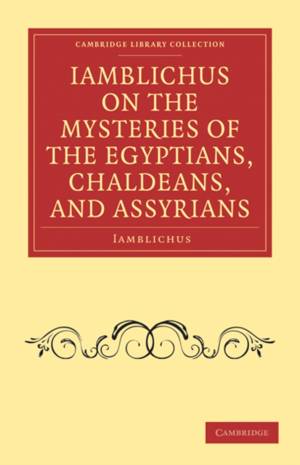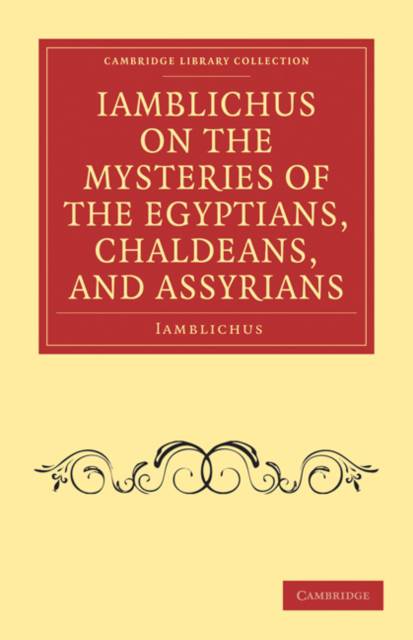
Door een staking bij bpost kan je online bestelling op dit moment iets langer onderweg zijn dan voorzien. Dringend iets nodig? Onze winkels ontvangen jou met open armen!
- Afhalen na 1 uur in een winkel met voorraad
- Gratis thuislevering in België vanaf € 30
- Ruim aanbod met 7 miljoen producten
Door een staking bij bpost kan je online bestelling op dit moment iets langer onderweg zijn dan voorzien. Dringend iets nodig? Onze winkels ontvangen jou met open armen!
- Afhalen na 1 uur in een winkel met voorraad
- Gratis thuislevering in België vanaf € 30
- Ruim aanbod met 7 miljoen producten
Zoeken
Iamblichus on the Mysteries of the Egyptians, Chaldeans, and Assyrians
Iamblichus
€ 80,95
+ 161 punten
Uitvoering
Omschrijving
This translation from the Greek by Thomas Taylor (1758-1835) was first published in 1821. Taylor's early writings and translations into English influenced such romantic poets as Blake, Coleridge and Keats. Iamblichus is thought to have been born in Syria in the middle of the third century and is regarded as one of the great Neoplatonist philosophers. He founded a school in which he taught 'white magic' or 'theurgy'; he sought to uncover the invisible side of nature and to give Man the means to effect the union of the divine spark with its parent-flame within him. In this work, divided into ten sections, he gives a complete canon of pagan religious thought and belief and explains their background. The Neoplatonist Porphyry's Letter to Anebo, in which he criticises religious rituals and practices, and Iamblichus' response to this criticism, and defence of these traditions, are included.
Specificaties
Betrokkenen
- Auteur(s):
- Uitgeverij:
Inhoud
- Aantal bladzijden:
- 396
- Taal:
- Engels
- Reeks:
Eigenschappen
- Productcode (EAN):
- 9781108073042
- Verschijningsdatum:
- 19/05/2011
- Uitvoering:
- Paperback
- Formaat:
- Trade paperback (VS)
- Afmetingen:
- 140 mm x 216 mm
- Gewicht:
- 498 g

Alleen bij Standaard Boekhandel
+ 161 punten op je klantenkaart van Standaard Boekhandel
Beoordelingen
We publiceren alleen reviews die voldoen aan de voorwaarden voor reviews. Bekijk onze voorwaarden voor reviews.











